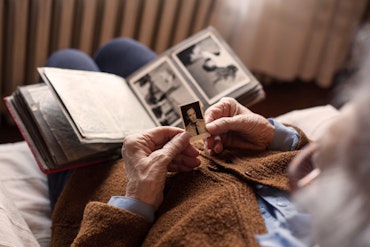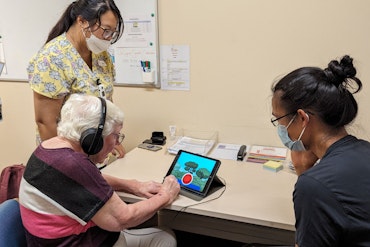Chess and crossword puzzles keep dementia risk in check
![<p>Although socialising and knitting are often seen as preventative measures for the risk of dementia development, Monash University findings suggest chess and crossword puzzles may be more effective. [Image courtesy of Jovan Milosavljevic via Shutterstock]</p>](https://agedcareguide-assets.imgix.net/news/articles/wp/Jovan-Milosavljevic-chess.jpg?fm=pjpg&format=auto&w=550&q=65)
Although socialising and knitting are often seen as preventative measures for the risk of dementia development, Monash University findings suggest chess and crossword puzzles may be more effective. [Image courtesy of Jovan Milosavljevic via Shutterstock]
Key points:
- The Monash University study, Lifestyle Enrichment in Later Life and Its Association With Dementia Risk (2023) found those with chess, computer and crossword lifestyle activity had reduced risk of dementia
- Activities such as socialising, knitting and painting were previously believed to stave off the onset of dementia
- The study involved 10,318 older individuals in Australia and assessed their dementia risk over the next 10 years, based on mental stimulation through recreational activities
Lifestyle Enrichment in Later Life and Its Association With Dementia Risk (2023), published in the peer-reviewed ‘Journal of the American Medical Association’ [JAMA] Network, outlined the dementia risk of older Australians, relative to their level of mental stimulation.
The research is notable, not only for its findings, but due to its scale and comprehensive detail, with 10,318 participants over the age of 70 involved in the study. Findings from the study suggest those who engage with literacy or mentally stimulating activities had a reduced risk of developing dementia, in contrast to frequently socialising or interacting.
Researchers found that participants who routinely engaged in adult literacy and mental acuity tasks such as education classes, keeping journals, and doing crosswords were nine – 11 percent less likely to develop dementia than their peers, using data sourced from Aspirin in Reducing Events in the Elderly [ASPREE].
Creative hobbies like crafting, knitting and painting, and more passive activities like reading reduced the risk by seven percent, whereas the size of someone’s social network and the frequency of external outings to the cinema or restaurant were not associated with dementia risk reduction. Researchers found that the difference in risk reduction remained significant, even after adjusting for economic background, gender and education history.
Senior author of the report and Associate Professor Joanne Ryan, from the School of Public Health and Preventive Medicine, said identifying strategies to prevent or delay dementia was a huge global priority.
“We had a unique opportunity to close a gap in knowledge by investigating a broad range of lifestyle enrichment activities that older adults often undertake, and assess which of those were most strongly aligned with avoiding dementia,” Assoc/Prof Ryan said.
“I think what our results tell us is that active manipulation of previously stored knowledge may play a greater role in dementia risk reduction than more passive recreational activities. Keeping the mind active and challenged may be particularly important.”
Although Assoc/Prof Ryan noted the difference in dementia risk reduction between mentally engaging and social or creative tasks, she added that creative activities may still be beneficial to older Australians in other respects.
“The participants were cognitively healthy, and were likely already leading socially active lives, such that the cognitive benefits of strong social networks may be less obvious in this group compared to the general public,” she said.
To read the full assessment which outlines 19 activities and the associated outcomes for study participants, please access the JAMA Network portal.























